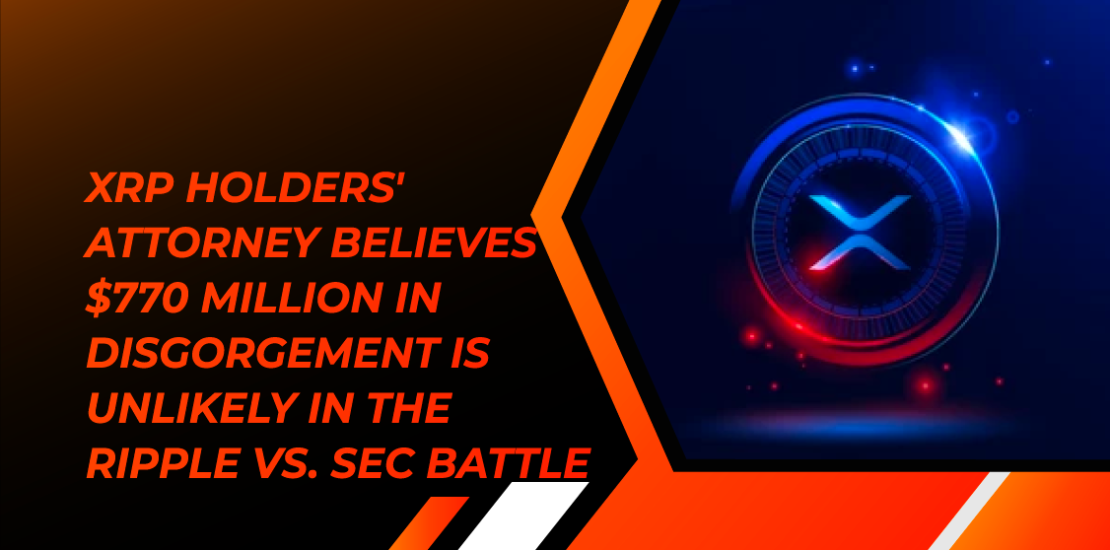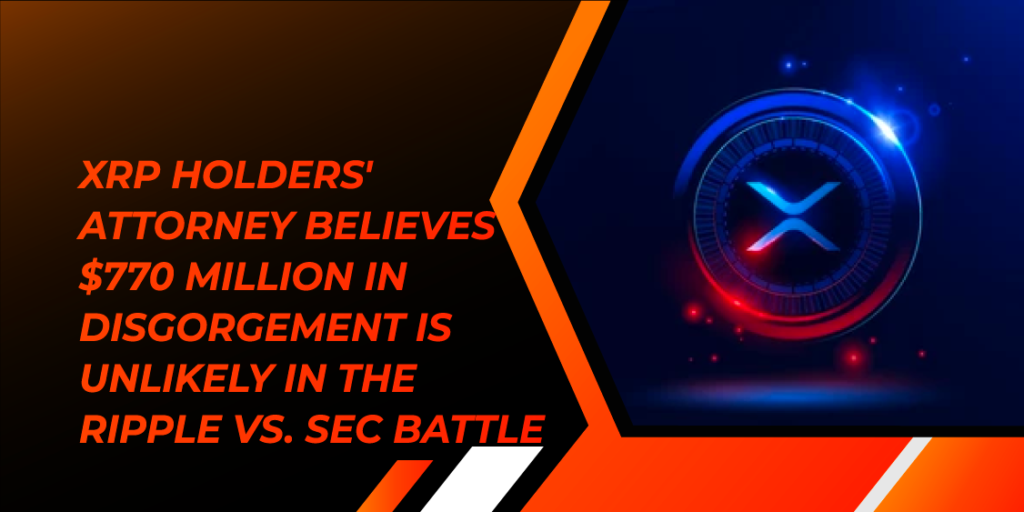- November 12, 2023
- Posted by: [email protected]
- Category:


In the ongoing legal tug-of-war between Ripple and the U.S. Securities and Exchange Commission (SEC), attorney John Deaton, an advocate for XRP holders, meticulously outlines a compelling case against the anticipated $770 million disgorgement for Ripple. His argument hinges on nuanced factors that he deems crucial in shaping the court’s ultimate decision.
The Morrison case, a jurisprudence that significantly limits the SEC’s authority to transactions within the United States, is a keystone in Deaton’s legal armoury. Ripple’s XRP transactions in jurisdictions like the United Kingdom, Japan, and Switzerland are currently under scrutiny. Importantly, the fact that regulatory bodies in these regions, such as the Financial Conduct Authority (FCA) and the Financial Services Agency (FSA), have not classified XRP as a security becomes a potent tool for Ripple’s defense. This classification not only safeguards Ripple’s ability to continue XRP sales in these regions but also poses a formidable challenge to the SEC’s pursuit of disgorgement from international transactions.
Deaton underscores a critical point that distinguishes this legal action from typical fraud cases. Rather than being centered on allegations of fraud, the dispute is characterized as a regulatory disagreement. This strategic move shifts the focus away from punitive measures, redirecting it to issues of regulatory adherence. Given that a substantial proportion of XRP sales involve transactions outside the U.S. and with accredited investors, the likelihood of disgorgement diminishes significantly. By excluding non-U.S. sales, which may constitute over 90% of the total, and sales to accredited investors, Deaton foresees a substantial reduction in the potential disgorgement amount.
Moreover, Deaton accentuates that the SEC’s accusations are not primarily rooted in investor harm but rather hinge on a regulatory viewpoint. He points out that institutional XRP sales have not caused harm, as the current XRP price surpasses levels during those sales, indicating an absence of investor losses. The lawyer further emphasizes the swift nature of On-Demand Liquidity (ODL) transactions with XRP, occurring within seconds, which significantly reduces the potential for investor harm.
An intriguing aspect surfaces as Deaton observes that accusations of harm are ironically more directed at the SEC than Ripple, particularly among the 75,000 XRP holders actively participating in the legal proceedings.
In essence, Deaton’s meticulous analysis underscores the complexities of the legal battle, revealing that Ripple faces slim odds of the predicted $770 million disgorgement. The global nature of XRP sales, coupled with the regulatory distinctions across various jurisdictions, emerges as pivotal elements in Ripple’s defense strategy against the SEC’s claims.



